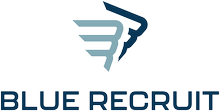Common Hiring Mistakes Companies Often Make
1. Unclear Job Descriptions
When job posts lack clarity or overpromise, candidates may become disengaged, leading to mismatched expectations and high turnover. Transparent, attractive, and accurate job descriptions help align expectations from the start.
2. Skipping Applicant Phone Screenings
Rushing to schedule in-person interviews without an initial phone screening is a missed opportunity. A quick call helps assess professionalism, interest, and fit before investing more resources.
3. Insufficient Interviewer Training
Not every interviewer is trained in compliance, structured evaluation, or conducting effective interviews. Without guidance, interviews may overlap redundant questions or hang on irrelevant topics, wasting time and misrepresenting company standards.
4. Failing to Ask the Right Questions
Interviews that focus solely on credentials and neglect personality, critical thinking, and soft skills miss the chance to gauge deeper qualities. Behavioral and scenario-based questions reveal how candidates may perform in real-world situations.
5. Neglecting Cultural Fit
Even highly skilled candidates can struggle if their values and behaviors don’t align with company culture. Without assessment of cultural fit, team cohesion and long-term satisfaction suffer.
6. “Winging” Interviews
Going into interviews unprepared, without reviewing resumes or crafting a structured plan, signals unprofessionalism and wastes both parties’ time. Preparation improves professionalism and yields more meaningful exchanges.
7. “Talking At” Instead of Conversing
When interviews become monologues—focusing solely on the company or interviewer—candidates don’t get a chance to respond, ask questions, or engage—undermining a genuine connection. Hiring should be a two-way dialogue.
8. Overly Aggressive or Interrogative Tone
Pesky or personal questioning can alienate candidates. Maintaining respect and professionalism ensures a safe environment for open, honest dialogue.
9. Unconscious Bias
Implicit biases—based on age, gender, ethnicity, alma mater—can skew assessments. Companies should use standardized questions, blind resumes, and diverse panels to mitigate this risk and foster fairness.
10. Failing to Value Soft Skills
Employers often overemphasize technical abilities at the expense of communication, adaptability, teamwork, and problem-solving. Soft skills are foundational for collaboration and long-term success.
11. Premature Judgments
Relying on first impressions or small details—like handshakes or initial appearance—can lead to overlooking potentially strong candidates. Giving each candidate a full, fair evaluation period is essential.
12. Not “Selling” the Role
The hiring process is reciprocal: top talent will decline roles lacking clarity about growth, perks, and culture. Failing to highlight what makes the company compelling can result in losing strong candidates.
13. Skipping Critical Details
Failing to provide transparency around responsibilities, challenges, or team dynamics sets hires—and teams—up for disappointment and friction. Clear communication helps ensure alignment from day one.
14. Neglecting Reference and Background Checks
Skipping verification steps can expose companies to risk. Reference checks validate claims, and background checks protect team safety and trust. Although time-consuming, they’re essential to make an informed hire.
15. Overvaluing Credentials Over Potential
A rigid focus on degrees or titles can lead to dismissing candidates who may excel given opportunity, drive, or adaptability. Balancing credentials with potential opens doors to growth-oriented hires.
Summary: Key Pitfalls & Solutions
| Mistake | What Goes Wrong | How to Fix It |
|---|---|---|
| Vague job descriptions | Poor applicant alignment, high turnover | Write accurate and engaging descriptions |
| No phone screening | Wastes interviewer’s and candidate’s time | Conduct quick pre-interview filters |
| Untrained interviewers | Inconsistent evaluations | Train hiring stakeholders properly |
| Credentials-only vetting | Missed soft-skill assessment | Ask behavioral, hypothetical questions |
| Ignoring culture fit | Team discord | Evaluate value and style alignment |
| Disrespectful or unprepared interviewing | Bad candidate experience | Structure and prepare properly |
| First-impression snap judgments | Premature disqualification | Complete full assessment before deciding |
| Not advertising benefits | Losing talent to competitor | Highlight value proposition clearly |
| Skipping checks and references | Risky hires made | Add verifications as hiring standard |
| Over-prioritizing credentials | Missing growth potential | Balance with adaptability and mindset |
In short: Effective hiring hinges on clear communication, structured evaluation, respect for candidates, and balance between skills and culture. When companies neglect training, clarity, fairness, or thoughtful preparation, they risk wasting resources—and losing out on great talent.


